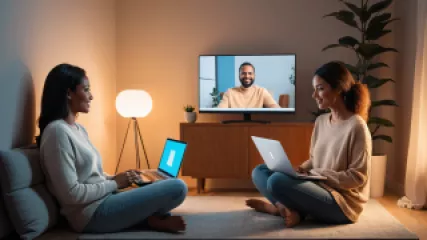Insights from Relationship Therapy Sessions: An Interview Feature
Welcome to our interview feature, where we delve into the world of relationship health and gain valuable insights from relationship therapy sessions. Today, we have the privilege of speaking with Emilia Casey, a renowned couples therapist with years of experience in helping couples navigate the complexities of their relationships. Through this interview, we hope to shed light on the importance of relationship wellness programs and the benefits of virtual counseling for relationships.
The Role of Relationship Therapy Sessions
Relationship therapy sessions play a crucial role in supporting couples in their journey towards improved emotional intimacy and overall relationship health. Emilia Casey emphasizes that these sessions provide a safe and structured space for couples to address their concerns, communicate effectively, and work towards resolving conflicts. She believes that seeking professional help can be transformative for couples, fostering growth, and enhancing the quality of their relationship.
1. How can relationship therapy sessions benefit couples?
According to Emilia Casey, relationship therapy sessions offer numerous benefits for couples, including:
- Improved Communication: Therapy sessions provide a platform for couples to enhance their communication skills, express their needs, and listen empathetically to their partner's perspective.
- Conflict Resolution: Couples can learn constructive ways to resolve conflicts, manage disagreements, and find mutually satisfying solutions.
- Enhanced Emotional Intimacy: Therapy sessions focus on building emotional intimacy, fostering trust, and deepening the connection between partners.
- Self-Reflection: Couples have the opportunity to reflect on their own patterns, beliefs, and behaviors that may be contributing to relationship challenges.
- Tools and Strategies: Therapists equip couples with practical tools and strategies to navigate challenges, improve their relationship dynamics, and foster long-term growth.
2. How does virtual counseling for relationships work?
In recent years, virtual counseling has gained significant popularity as a convenient and accessible option for couples seeking therapy. Emilia Casey explains that virtual counseling provides couples with the flexibility to engage in therapy sessions from the comfort of their own homes, eliminating geographical constraints and reducing barriers to seeking help.
Through video conferencing platforms, therapists can conduct sessions that closely mimic the experience of in-person therapy. Emilia highlights that virtual counseling allows couples to receive the same level of support and expertise as traditional therapy while offering added convenience and privacy.
The Benefits of Relationship Wellness Programs
Relationship wellness programs are designed to provide couples with comprehensive guidance and tools to cultivate a healthy and thriving relationship. Emilia Casey shares her insights on the advantages of these programs and how they can contribute to long-term relationship success.
1. What makes relationship wellness programs effective?
Emilia Casey believes that relationship wellness programs are effective because they take a holistic approach to relationship health. These programs typically encompass various aspects of a relationship, including communication, emotional intimacy, conflict resolution, and personal growth.
By addressing these different components, couples gain a comprehensive understanding of their relationship dynamics and acquire the necessary skills to build a strong foundation for long-lasting love and connection.
2. How can couples incorporate the lessons from relationship wellness programs into their daily lives?
According to Emilia Casey, the key to incorporating the lessons from relationship wellness programs into daily life lies in consistent practice and open communication. She recommends the following strategies:
- Commitment to Growth: Couples should view their relationship as an ongoing journey of growth and improvement. This mindset encourages them to actively engage with the lessons learned in relationship wellness programs.
- Regular Check-Ins: Setting aside regular time to check in with each other allows couples to discuss their progress, address any emerging issues, and reinforce the skills they have learned.
- Implementing Tools: Couples can integrate the tools and strategies acquired from relationship wellness programs into their daily lives. This might involve practicing active listening, using "I" statements during conflicts, or scheduling quality time together.
- Seeking Support: If challenges arise, couples should not hesitate to seek support from therapists or revisit their relationship wellness program to reinforce their knowledge and skills.
Achieving Relationship Health and Long-Term Happiness
Emilia Casey concludes our interview by emphasizing that achieving relationship health and long-term happiness requires dedication, effort, and a willingness to grow both individually and as a couple. She encourages couples to prioritize their relationship by seeking professional help when needed and investing in relationship wellness programs.
Through relationship therapy sessions and the guidance provided by relationship wellness programs, couples can navigate the complexities of their relationships, deepen their emotional connection, and create a solid foundation for a fulfilling and sustainable partnership.
Interview conducted by Jocelyn Reeves, Relationship Health Writer






